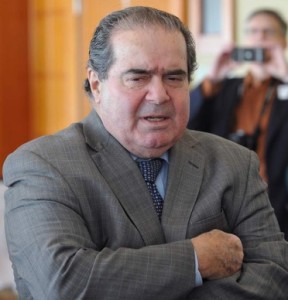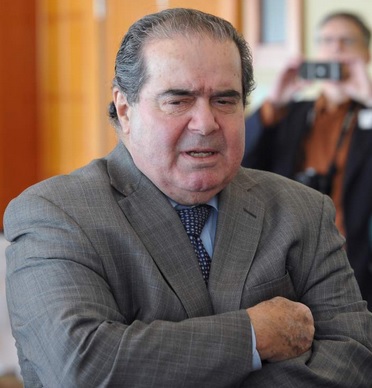US Supreme Court – King vs Burwell APTC
Subsidies Upheld in Federal Exchange – Covered California
What the court decided
Congress passed the Affordable Care Act to improve health insurance markets, not to destroy them. If at all possible, we must interpret the Act in a way that is consistent with the former, and avoids the latter. Section 36B can fairly be read consistent with what we see as Congress’s plan, and that is the reading we adopt. King v Burwell
Dissenting
Justice Scalia
The Court holds that when the Patient Protection and Affordable Care Act says
“Exchange established by the State” it means “Exchange established by the State or the Federal Government.”
That is of course quite absurd, and the Court’s 21 pages of explanation make it no less so. King v Burwell
Here are the most quotable lines from his written dissent:
1. “This Court, however, concludes that this limitation would prevent the rest of the Act from working as well as hoped. So it re-writes the law to make tax credits available everywhere. We should start calling this law SCOTUScare.”
2. “The Court’s next bit of interpretive jiggery-pokery involves other parts of the Act that purportedly presuppose the availability of tax credits on both federal and state Exchanges.”
3. “Pure applesauce. Imagine that a university sends around a bulletin reminding every professor to take the “interests of graduate students” into account when setting office hours, but that some professors teach only undergraduates. Would anybody reason that the bulletin implicitly presupposes that every professor has “graduate students,” so that “graduate students” must really mean “graduate or undergraduate students”? Surely not.”
4. “The somersaults of statutory interpretation they have performed … will be cited by litigants endlessly, to the confusion of honest jurisprudence.”
5. “It is bad enough for a court to cross out “by the State” once. But seven times?”
6. “The Court’s decision reflects the philosophy that judges should endure whatever interpretive distortions it takes in order to correct a supposed flaw in the statutory machinery. That philosophy ignores the American people’s decision to give Congress “[a]ll legislative Powers” enumerated in the Constitution.”
And from Scalia’s oral dissent from the bench:
7. “The Court solves that problem (believe it or not) by simply saying that federal exchanges count as state exchanges only (and this is a quotation from the opinion) “for purposes of the tax credits.” How wonderfully convenient and how utterly contrary to normal principles of interpretation.” CNN.Com
United States House of Representatives v. Burwell, et al On May 12, 2016, judge Collyer ruled in favor of the House of Representatives saying that although the subsidies in the Affordable Care Act were authorized by Congress, since Congress did not specifically appropriate money for the subsidies, public money can not be used to fund the subsidies. The ruling has been stayed, and the subsidies will continue, pending an expected appeal.[26] Learn More ==> Wikipedia
Los Angeles Times report on Split 3.4.2015
GOP unveils contingency plan CA Health Line 4.22.2015
Oral Argument to be heard 3.4.2015 Modern Health Care ♦ 11.7.2014 Modern Health Care – Supreme Court will hear case… exact wording vs intent?
One part of the law says the tax credits are available only to Americans who enrolled “through an exchange established by the state.” But the Obama administration argues that the law’s clear intention was to offer subsidies and expand coverage to Americans in every state, and that other sections of the law indicate that subsidies are available to people in states served by the federal exchange.
1.9.2015 9.6 M could lose coverage if subsidies end CA Health Line
CA Health Line 2.24.2015 Senator Orrin Hatch to introduce emergency legislation if court rules against subsidies.
1.28.2015 Kaiser Foundation Poll indicates most Americans want Congress to change law to keep subsidies if court rules against them.
Possible things President Obama can do if Supreme Court SCOTUS rules against Subsidies National Journal 1.25.2015.
Tuesday 9.30.2014 Federal Judge in Oklahoma ruled that the Federal Exchange www.HealthCare.Gov can’t provide subsidies, tax credits for Health Insurance Premiums. “The court holds that the IRS Rule is arbitrary, capricious, an abuse of discretion or otherwise not in accordance with law,” ModernHealthCare.com
The full U.S. District Court of Appeals for the District of Columbia to hear Halbig v. Burwell case. (CA Health Line Modern Health Care Huffington Post)
Courts issue conflicting rulings on Federal Subsidies – A three-judge panel of the 4th U.S. Circuit Court of Appeals ruled unanimously that the subsidies are legal, while the U.S. Court of Appeals for the District of Columbia Circuit ruled that they are not, with the judges splitting 2-1. Appeals are in the works, but a Supreme Court decision on the matter is likely at least a year away. Modern Health Care 7.23.2014 CA Health Line Instability in the market place? Modern Health Care
Tuesday’s split decision in two federal appellate court cases over whether consumers shopping on the federal insurance exchange can receive premium subsidies could have major effects on the healthcare market. But some experts say officials in states that have not established their own state-run exchanges could solve the problem fairly easily if they want to, and that they will face significant political pressure to do so.
A study by the Urban Institute concluded that 7.3 million Americans would lose $36.1 billion in federal subsidies in 2016 if states that defaulted to the federal exchange can’t access subsidies. That would have a big impact on the exchange insurance market, both in the number of consumers buying plans and in the health status of the greatly reduced pool of enrollees Modern HealthCare.com
The legal question in the four cases centers on the wording that describes who is eligible for the subsidies. Section 1401 [Final Rule Page 12 – 36 b Page 95 HR 3590 Section 1401 36 B of the law says premium tax credits to buy insurance will be provided to individuals and families who get insurance “through an exchange established by the state.” modern health care.com
Appeals court leaning toward gutting subsidies at HealthCare.Gov Modern Health Care.com
A federal appeals court has ruled the Obama administration cannot subsidize insurance premiums for nearly 7 million Americans, dealing a serious blow to the Affordable Care Act. The ruling sets up an almost-certain appeal to the U.S. Supreme Court.
Two judges with the D.C. Circuit Court of Appeals in Washington ruled Tuesday that the text of the reform law clearly forbids income-tax subsidies to go to low- and middle-income Americans who use one of the 34 federally run insurance exchanges. The tax subsidies have been flowing since the beginning of the year, based on a 2012 interpretation of the law by the IRS. .modernhealthcare.com nbc news.com
View actual 72 page ruling health reform quotes.com pdf
Federal judges in Richmond., Va., unanimously upheld the legality of subsidies for insurance exchanges in every state Tuesday. The ruling came roughly two hours after a panel of judges in Washington ruled subsidies on federal exchanges were illegal under language in the Patient Protection and Affordable Care Act. modern health care.com/
Ruling expected soon California health line.org
Latest Developments
The conflicting appellate court opinions on the validity of health insurance subsidies in states with federally run exchanges will give the U.S. Supreme Court a second opportunity to eviscerate the Patient Protection and Affordable Care Act, a decision that is at least a year away.
TownHall.com – no evidence to support legislative intent that Federal Exchange can hand out subsidies.
Justice Dept files appeal in Halbig case
One can easily imagine the ads that will run in Federal Exchange States : Harry and Louise (last seen in the early 1990s in anti-reform ads sponsored, ironically, by the insurance industry) fretting at their kitchen table about whether to buy that $10,000-a-year bronze plan. The deep-voiced narrator intones, “When you’re responsible for the full cost of that plan, how will you afford $10,000?”
One should never predict what the courts will do, especially the Supreme Court under Chief Justice John Roberts. Recall that liberal justices Elena Kagan and Stephen Breyer joined the conservative majority in NFIB v. Sebelius to give states the option of forgoing Medicaid expansion. At the time, many court watchers thought they did so to persuade Roberts to join the four liberals on the court in upholding the rest of the law.
Insurers, when setting next year’s rates, should think more about their long-term opportunities than their short-term fears about excess utilization that hasn’t yet materialized. And insurers and providers need to work together to create networks whose adequacy hasn’t been sacrificed in the name of affordability. (Modern Health Care.com 7.28.2014)
***
Related Pages
[child-pages]



